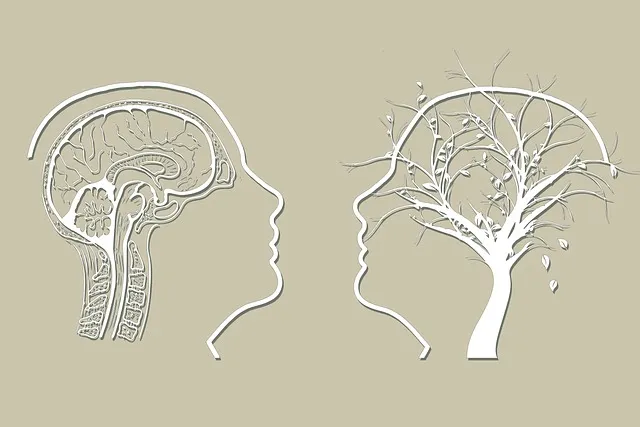Boulder Kaiser Permanente prioritizes culturally sensitive mental healthcare, recognizing diverse patients' unique needs. They've developed specialized services like Trauma Support, tailored to cultural beliefs, and train staff in cultural competency for adaptive communication. This integrated approach improves patient outcomes by fostering trust and personalized care through specific cultural strategies. Their multifaceted strategy includes a Community Outreach Program, mental wellness journaling, and continuous learning for emotional intelligence, ensuring their services remain sensitive to diverse needs, enhancing care quality.
In an increasingly diverse society, cultural sensitivity in mental healthcare is paramount. This article explores strategies employed by Boulder Kaiser Permanente to navigate the complex landscape of cultural diversity in mental health services. We delve into the impact of cultural sensitivity on patient outcomes, highlighting how tailored approaches improve care. Through examining specific initiatives at Boulder Kaiser Permanente and practical steps for integration, this piece offers insights into enhancing culturally competent clinical practice, ultimately improving access to effective mental health care for all.
- Understanding Cultural Diversity in Mental Healthcare at Boulder Kaiser Permanente
- The Impact of Cultural Sensitivity on Patient Outcomes
- Strategies for Incorporating Cultural Competence in Clinical Practice
- Continuous Education and Training for Culturally Sensitive Mental Health Care
Understanding Cultural Diversity in Mental Healthcare at Boulder Kaiser Permanente

At Boulder Kaiser Permanente, acknowledging and embracing cultural diversity is integral to delivering exceptional mental health care. The organization recognizes that individuals from various ethnic, racial, and cultural backgrounds may experience unique challenges and have distinct needs when it comes to seeking emotional support and healing. This understanding has prompted them to develop specialized services tailored to address these specific requirements. For instance, their Trauma Support Services are designed to provide culturally sensitive care for survivors of traumatic events, ensuring that treatment approaches align with individual cultural beliefs and practices.
Effective communication is a cornerstone of this sensitivity. Boulder Kaiser Permanente’s mental health professionals are trained in cultural competency, employing adaptive communication strategies to foster trust and understanding. This involves learning about different cultural contexts, values, and expressions of distress, enabling healthcare providers to offer empathetic and tailored support. By integrating these approaches, the organization aims to facilitate smoother emotional healing processes for a diverse range of patients within their care.
The Impact of Cultural Sensitivity on Patient Outcomes

Incorporating cultural sensitivity into mental healthcare practice significantly enhances patient outcomes at institutions like Boulder Kaiser Permanente. By understanding and respecting a patient’s cultural background, mental health professionals can tailor their approach to better address individual needs and preferences. This personalized care fosters trust and engagement, leading to improved treatment adherence and, ultimately, positive therapeutic outcomes. For instance, culturally sensitive practitioners might employ specific communication strategies that resonate with patients from diverse communities, boosting confidence and encouraging open dialogue.
Boulder Kaiser Permanente’s commitment to cultural sensitivity goes beyond treating symptoms; it aims to address the root causes of mental health issues within a patient’s cultural context. Effective communication, coupled with burnout prevention strategies for healthcare providers, enables mental health professionals to offer compassionate care without compromising their well-being. This holistic approach not only benefits patients but also contributes to the overall sustainability and effectiveness of the mental health services provided by organizations like Boulder Kaiser Permanente.
Strategies for Incorporating Cultural Competence in Clinical Practice

Incorporating cultural competence into clinical practice at Boulder Kaiser Permanente mental health services involves a multifaceted approach. One key strategy is to implement a robust Community Outreach Program that connects with diverse communities, fostering trust and understanding. This can include cultural events, educational workshops, and partnerships with local community organizations. Encouraging patients to participate in mental wellness journaling exercises tailored to their cultural backgrounds can also be beneficial. These journals allow individuals to express themselves on their terms, promoting self-awareness and reflection while respecting personal boundaries.
Additionally, cultivating emotional intelligence among mental health professionals is paramount. Training in this area helps providers recognize and appreciate the impact of cultural differences on emotional expression and communication styles. By embracing a culture of continuous learning and adaptation, Boulder Kaiser Permanente can ensure its services remain sensitive to the evolving needs of its diverse patient population, ultimately enhancing the quality of care provided.
Continuous Education and Training for Culturally Sensitive Mental Health Care

At Boulder Kaiser Permanente mental health services, recognizing the importance of cultural sensitivity in providing effective care, continuous education and training programs are vital. These initiatives ensure healthcare professionals remain updated on diverse cultural practices, beliefs, and challenges within the community. By participating in such programs, practitioners gain invaluable insights into how cultural factors influence mental health experiences, enabling them to offer more personalized and inclusive support.
The focus on continuous education is particularly crucial in addressing the unique needs of various ethnic, racial, and socio-cultural backgrounds. It equips healthcare providers with the skills to deliver trauma-informed care, fostering an environment of safety and trust for individuals seeking confidence boosting mental health services. This approach not only enhances patient outcomes but also encourages open communication, ensuring that every patient receives respectful and culturally competent treatment, as mandated by Boulder Kaiser Permanente’s commitment to Cultural Sensitivity in Mental Healthcare Practice.
Cultural sensitivity is a cornerstone of effective mental healthcare, as demonstrated by Boulder Kaiser Permanente’s commitment to addressing cultural diversity within their practice. By prioritizing cultural competence, patient outcomes improve significantly. Implementing strategies such as continuous education and training equips professionals to provide more inclusive care tailored to diverse populations. Embracing these approaches ensures that everyone seeking mental health services in Boulder Kaiser Permanente receives the culturally sensitive support they need for optimal well-being.






